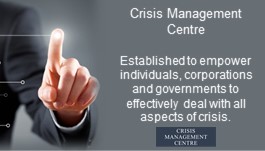
Subscribe to our Telegram channel to get a daily dose of business and lifestyle news from NHA – News Hub Asia!
In the first half of 2021, Citi has raised over US$25bn for Asia Pacific clients from global and local capital markets to support their sustainable financing needs. This is an increase of over 400% versus the same period for the bank in 2020 and the most for the bank for a half-year on record.
Highlight transactions in the first half include Alibaba Group’s US$5bn four-part offering in February, which included a 20-year sustainability tranche — its debut sustainable capital markets transaction. From the hardware sector, SK hynix issued a US$2.5bn bond in January with a 10-year green tranche. Citi likewise led a US$3bn sukuk for the Republic of Indonesia in June, which included a 30-year green tranche — the longest-ever green offering in Islamic format.
“As a global, value-driven firm, we are dedicated to supporting the transition to a low-carbon economy. We view sustainable financing both as a mandate and as an opportunity to partner with our clients across geographies — to help them decarbonize their operations and achieve their enterprise sustainability goals,” said Peter Babej, Citi Asia Pacific CEO.
Issuers in many cases can now raise cheaper financing via the issuance of green bonds.
Favorable pricing — or a ‘greenium’ — is evident among issuers of sustainable bonds as issuers monetize higher oversubscription levels for these transactions especially in busy or difficult markets. This is a function of the demand increase. 10 years ago, the ESG investing market was led by niche investors with assets under management not exceeding US$5bn according to market estimates. A decade on, ESG investing is mainstream — moving from niche to necessary — supporting the ascent of global ESG AUM to between US$30-45 trillion currently.
The capital raised for Asian clients is part of Citi’s overall global financing targets. In 2019, the bank met its $100 billion Environmental Finance goal four years early. In April 2021, the bank announced a US$500 billion environmental finance goal, as part of the US$1 trillion sustainable finance goal, all by 2030.
As the partnership with clients evolves, the dialogue though is widening further away from just financing.
“The scope of our sustainable financing efforts is growing continuously, and covers all client segments – from investors repositioning their portfolios toward greener industries, to corporates realigning their business models through acquisitions and divestitures. Our institutional commitment to building a greener future cuts across all these activities,” added Babej.
In many cases, Citi co-develops solutions together with buy side clients to ensure that we address their key requirements. These have included creating ESG World Indices – Citi’s first proprietary indices to offer a benchmark for the best-in-class ESG performers as we help our buy side clients transition their portfolios towards ESG. We are also seeing increasing demand from our wealth clients for green investments.
For our own operations, Citi is targeting net zero emissions by 2030, which builds on Citi’s environmental footprint goals and a 100% renewable electricity goal that the bank achieved in 2020.
Since 2001, Citi has worked to measure, manage, and reduce the direct environmental impacts of its operations by tracking energy use, greenhouse gas emissions, water use, waste, and green building initiatives. Citi remains committed to reducing the environmental footprint of our 7,000 facilities in close to 100 markets. Much of this focus is on ensuring our property portfolio is greener with clear and responsible targets.
A recent example is in Hong Kong, where we installed 360 solar panels at our main office in Hong Kong in March 2021. The rooftop Installation also includes a wind turbine, which generates electricity on-site for local use.
About Citi
Citi, the leading global bank, has approximately 200 million customer accounts and does business in more than 160 countries and jurisdictions. Citi provides consumers, corporations, governments and institutions with a broad range of financial products and services, including consumer banking and credit, corporate and investment banking, securities brokerage, transaction services, and wealth management.
Source: Citi


